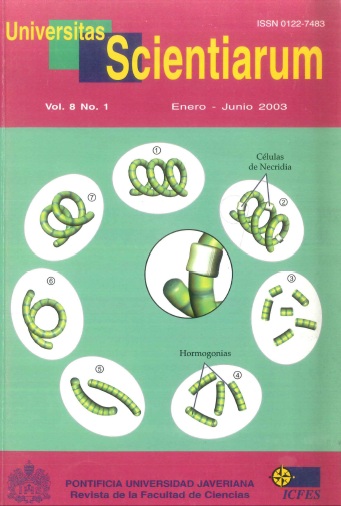Abstract
Neisseria gonorrhoeae (Ng) have been classified serologically on the basis of the antigenicity of the major porin (Por). PorIA occurs in two immunochemically distinct serogroups: PorIA and PorIB. Because the diagnostic, therapeutic, social, and legal corisequences of misidentification of a nongonococcal Neisseria isolate as Ng can be substantial, the accurate and rapid identification of this organism is important. Typifying of Ng is done by techniques based on phenotypic characteristics and plasmidic content that individually don't reach an adequate discrimination, and so combination of techniques must be used. The aim of this work is to obtain polyclonalspecific Ab that discriminate Ng types PorIA and PorIB. For this purpose, we immunized two rabbits with sonicated PorIA and PorIB strains of Ng (isolated from clínical samples and serologically classified). The Ab response was analyzed along the protocol by ELISA and by direct agglutination with latex coated with sonicated Ng. With these data, we selected the bleeding providing the serum with maximum specific Ab titer to prepare the typing reagents. Unwanted Ab directed against shared epitopes were removed by adsorption with Ng latex. The typing reagents were obtained by coating latex with each depleted sera. Our results suggest that high titers of specific Ab be obtained for both strains of Ng and the depleted sera be discriminated between both strains. These results suggest that these diagnostic reagents could be useful to confirm presumptive identification by a simple and rapid method.
The present work was proposed to be done in the Immunology practical course of the School of Chemistry.
Univ. Sci. is registered under a Creative Commons Attribution 4.0 International Public License. Thus, this work may be reproduced, distributed, and publicly shared in digital format, as long as the names of the authors and Pontificia Universidad Javeriana are acknowledged. Others are allowed to quote, adapt, transform, auto-archive, republish, and create based on this material, for any purpose (even commercial ones), provided the authorship is duly acknowledged, a link to the original work is provided, and it is specified if changes have been made. Pontificia Universidad Javeriana does not hold the rights of published works and the authors are solely responsible for the contents of their works; they keep the moral, intellectual, privacy, and publicity rights. Approving the intervention of the work (review, copy-editing, translation, layout) and the following outreach, are granted through an use license and not through an assignment of rights. This means the journal and Pontificia Universidad Javeriana cannot be held responsible for any ethical malpractice by the authors. As a consequence of the protection granted by the use license, the journal is not required to publish recantations or modify information already published, unless the errata stems from the editorial management process. Publishing contents in this journal does not generate royalties for contributors.



